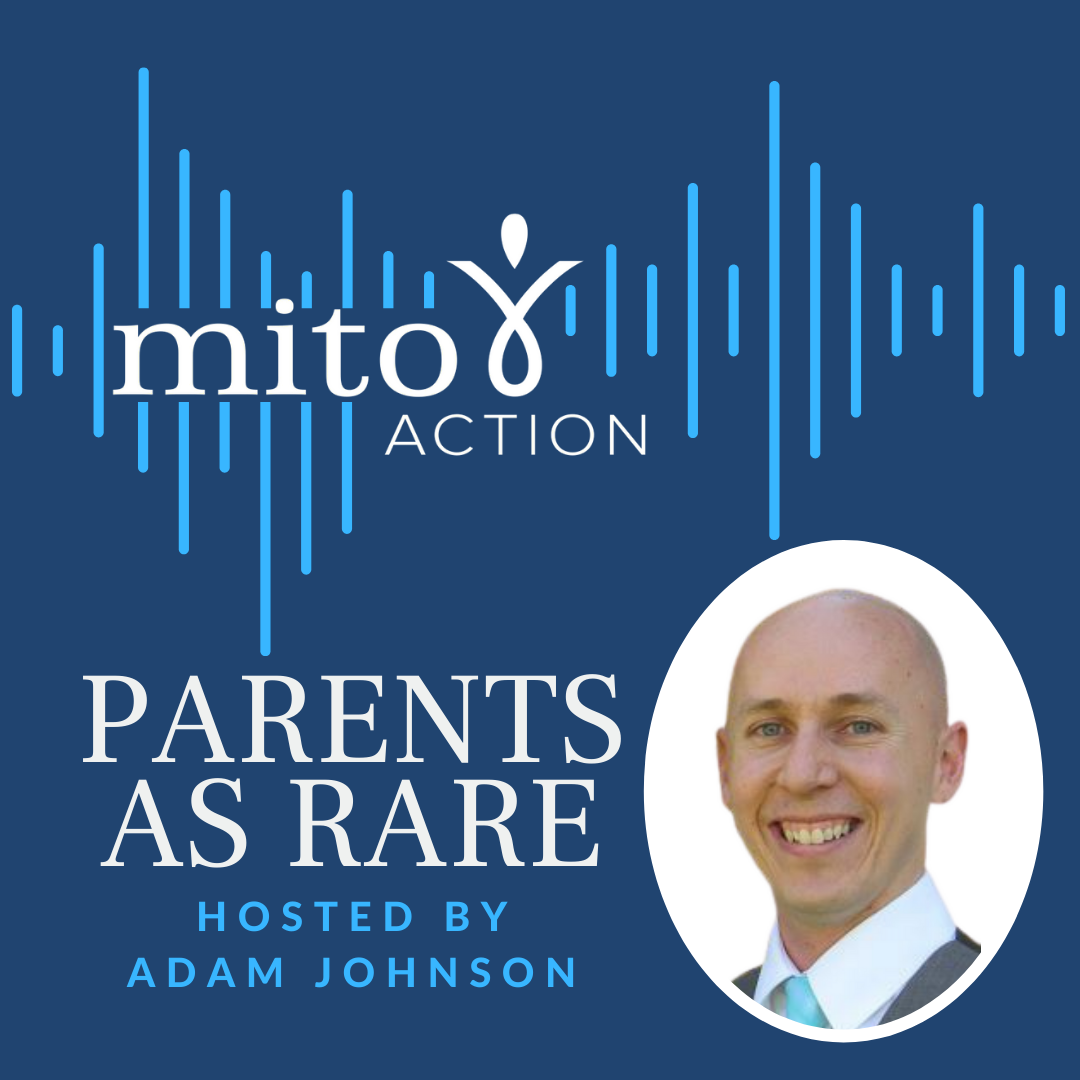ENERGY IN ACTION - EPISODE 051
Top 10 Tips for Empowerment & Being Your Own Advocate
Cristy Balcells is the Associate Director of Patient Advocacy and Public Policy for Zogenix and the mother of Eva, who has Leigh Syndrome, a type of mitochondrial disease. Christy joins me for a conversation around empowerment and shares her list of 10 tips for being a great mitochondrial disease advocate for yourself or someone you care for.
EPISODE HIGHLIGHTS
Get an accurate diagnosis because without a specific diagnosis, a lot of doors are closed to clinical trials, insurance coverage, participating in a patient registry or general eligibility for treatment. After you have a diagnosis, become an expert on your disease and diagnosis because no one will be invested in it like you are, whether for your child or yourself.
Baseline is a medical concept important for clinical trials. Determine your baseline by considering your average good days and bad days. Know and document your baseline so if you start a new treatment or therapy, you can identify how it's affecting your disease.
To set boundaries, use a script and be specific that you're not seeking advice, only support. Practice saying, "I'm going to talk to you about something I'm dealing with and I don't need your advice. I just want you to hear me and be there for support". If someone asks how they can help, provide options that would be helpful.
Allow questions to serve as an opportunity to raise awareness about your disease and always restate a question in your answer.
Use technology to stay organized and ensure your medical records are accessible. Keeping thorough and well-organized records is easier for you, but also helps when you have an opportunity to participate in a clinical trial, research study or equipment grant.
Subscribe to all of the newsletters on patient sites because knowledge is power. Set up Google alerts for keywords which will provide you a periodic digest around the keyword. You can also stay informed by joining social media or local support groups.
You won't be able to address every concern in every appointment, so prioritize your symptoms to discuss them with your physician. Daily tracking of your baseline data will help you know if symptoms are improving or getting worse and know if the symptom should be prioritized at your next check-up.
Documenting your journey can spread awareness to other people. Micro influencers in the disease space are respected and powerful because they make a difference.
You are the Director of Communications for yourself or your child's diagnosis. Provide updates and check in regularly with everyone on your team and keep developing relationships in your network.
Your experience is valuable and only you can share it. No one else can represent your experience. Participate in clinical trials, patient registries, surveys and interviews.
RESOURCES & LINKS MENTIONED
https://www.mitoaction.org/mobile_new/
https://support.google.com/websearch/answer/4815696?hl=en
https://www.youtube.com/channel/UCHwOT3pjEA3EgShKomTuTDw
https://www.instagram.com/themitogirl
https://ne-np.facebook.com/JeremiahGracenTK2DWarrior
CONNECT WITH MITOACTION
https://www.facebook.com/mitoaction
https://twitter.com/mitoaction

ENERGY IN ACTION - EPISODE 032 RNE Annual Conference Rare New England is a nonprofit in Massachusetts who serves the rare disease community in...

ENERGY IN ACTION - EPISODE 069 Give Kids the World with Justin Kiser Justin Kiser is a dad to Riley, who is five years...
